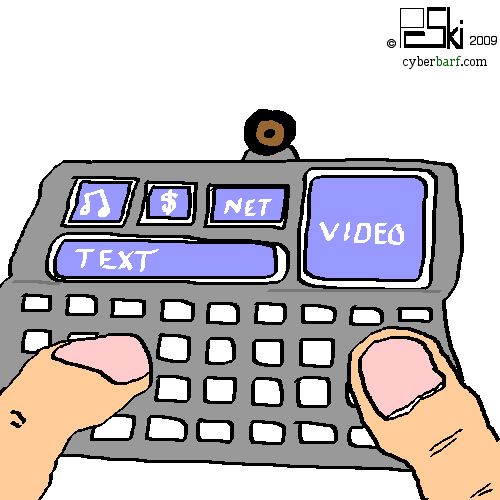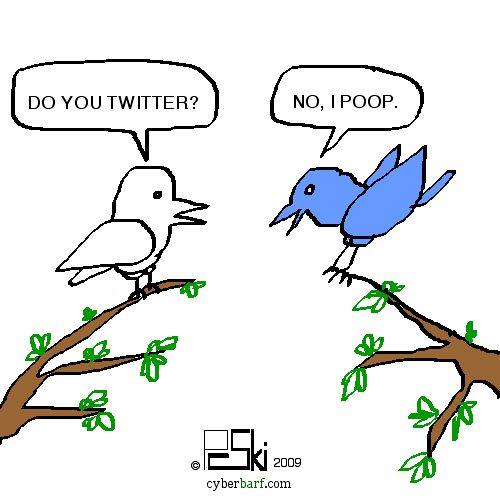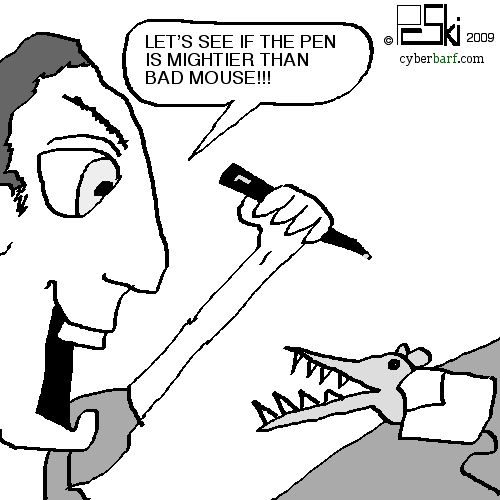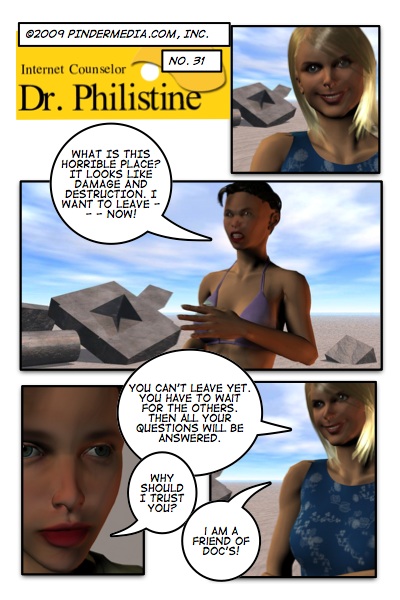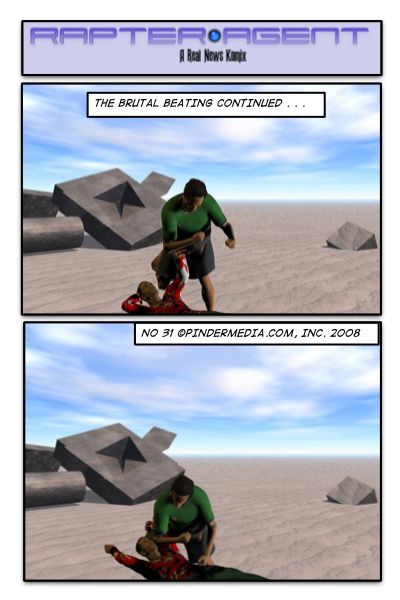|
CYBERBARF.COM internet commentary culture
tech cartoons
|
|
cyberbarf HUMBLE OPINIONS ARTICLE It was a cold winter night, cable surfing when IMHO showed up on the Big Ten Network. The BTN is the Big Ten conference's attempt to control its sports broadcast rights to maximize dollars for its institutions. For some reason, there was no repeat of a 1970s Minnesota-Purdue football game (the usual filler materials). Instead, it was a program called In My Humble Opinion, with five University of Wisconsin Madison students sitting around discussing topics. The episode that was on the air dealt with technology and campus life. Perfect fodder for this site. PRIVACY. The consensus was that use of social networking sites such as Facebook amounts to a clear loss of privacy. The on-line culture is demanding more openness. This leads to more risk of people being violated by the service, whether they are aware of it or not. Many students do not realize the ramifications of what they post on their pages. (Also, there are people taking advantage of one's posts, such as lifting personal pictures to sell to advertising agencies.) TEXTING. This current generation appears lost without their smart phones. Texting is taking away the average telephone call. It is also making it harder for people to have simple, in-person conversations because their brains are being re-wired in short, non-sentence, ideas and phrases. Texting is creating an impersonal world. It lacks the context of vocal inflection. A phrase could be cold or humorous depending on how the person vocalizes it. The best use of texting is for instant messaging, such as a location to meet, or one running behind an appointed rendezvous. SOCIAL NETWORKING. The majority of the panelists were actively involved in some form of digital networking, from facebook to Twitter, as a method of connecting with friends. Some felt it the immediate updates to and from friends, no matter the location, was a natural evolution of the in person conversation. One person said that he did not like the emphasis on the new social networking concepts. He felt that the old college experiences and in person activities were getting muted by technology. On the dark side, one woman felt that the features of the web could also lead to the rise of stalkers. ADDICTION. This generation is becoming addicted to technology. A few that have gone “cold turkey” and not used their computers or cell phones for a day or two come back with the shakes. A few say that it was a welcome relief not to be connected to the grid, where you HAVE TO immediately respond to everyone's messges. It was a relief to step away from the frantic pace of being connected 24/7. However, they realize that since their friends, families and faculty are all hard wired, they have to maintain a presence in digital space in order to keep up with the information that floods their in-box each day. CLASSROOM TECHNOLOGY. There were also different viewpoints on technology in the classroom. Many students bring laptops into the classrooms. Some professors network their class assignments to their student's laptops. One student found the use of a laptop in a lecture hall distracting; she found that many of her fellow students were on their blog pages or updating their facebook profiles. She felt that that behavior was an insult to the educational process. If you come to class, you should pay attention to the lectures. Another student replied that she types faster on her laptop than handwriting notes so the technology of a computer in class helped her study. A man said that he felt the whole school experience is lost without note taking and actually reading textbooks. Since more classes have their materials on line or on PDF documents, the extraction of knowledge from a textbook is lost. One woman said despite technology, she marks up her textbooks as part of the learning process. Another man agreed, saying that is why he bought used textbooks because the key chapter points were already highlighted. CHEATING. Technology makes it much easier for a lazy student to cheat. The consensus is that the “cut and paste” term paper is on the rise. A person can google the topic, and cut and paste two or three source pages, reformat it in word program, and turn it in without actually knowing what he or she has actually constructed for submission. The real lazy merely go to wikipedia and copy the entire page and turn that in. They laughed because professors are smart enough to know that this is going on. Some professors do their own lazy google term paper before making the assignment to have a hard copy to compare student papers. Some universities are using word recognition programs to weed out plagarism and duplicate term papers. Besides, they said, what is the point of being in college if you don't even attempt to do any work for grades? NEW MEDIA. One gets the sense that this generation is torn between the digital delivery of news and the old media textural formula of sitting down and reading physical newspaper pages. Journalism and broadcast students have the belief that the written newspaper page has the credibility standards of the profession in each column of text. They are aware that the internet is filled with misinformation, lack of source identification, trustworthiness. But more students aggregate their news and information on line, rarely distinguishing from blogger opinion and hard news stories. The public will still demand correct information, no matter the source. How the news will be reported in the future is not the concern, but how the news is created to be reported is the real issue left unaddressed in the industry financial crisis.
This program was surprisingly refreshing public interest discussion from a youth perspective. Especially since it was on a college sports network
|

|
cyberbarf ON LINE EDUCATION EXPERIENCE There may be a new phrase in the on-line education field: teachers make lousy tele-education students. Based on personal antedotes from university professors who are working toward advanced degrees have a universal distaste for taking classes via the internet or teleconference. It may be from their own teaching experience and training to interact directly with students and the material. But forced with the prospect of having to complete 14 hours of professional continuing education credits, the concept of spending a week away from the office daunting. On-line seminars for approved credit seemed to be the only viable alternative to re-certification. Knowing what teachers had said about their experiences made the concept less palatable. But the on demand feature of listening to seminars at one's own time and pace was the key feature that outweighed any potential prejudice. Log into the materials site. Search through the state approved seminars or classes. Click on the one of interest. Enroll. Then start the audio/video presentation. The service used only worked in Windows; but a Mac running Parallels worked fine. Headphones for the audio was the best way to cue into the speakers without disturbing the work area. It was easy to handle one hour programs at a time. Get one out of the way; check messages or to-do lists. Finish something else up, and go back to do another hour, hour and one-half program. A two to three hour seminar, for more credits, would be burdensome. However, it would be less burdensome than spending an entire day away from work at the actual live presentation. The on-demand feature and depth of topics made this on-line educational experience much more pleasant than my educator friends made it out to be. PROS: On-demand feature of programs meant that you can pick your own day and time to get course credits. Variety of topics and length of programs was the key to a successful educational experience. CONS: Program course materials may not be fully available during the audio programs. Video capture was small and at time rebroadcasts of audio-video productions had audio issues, especially when the speakers took inaudible questions from audience members. OVERALL GRADE FOR TELE-EDUCATION: A-.
|
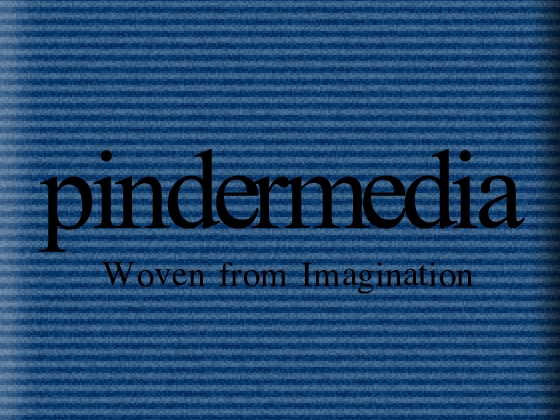
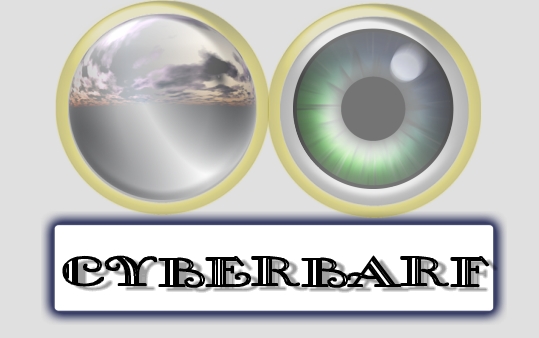 |
LAST MONTH'S STEAM PUNK SPECIAL EDITION featured new Music from Chicago Ski & the (audio) Real News: (mp3/4;14 length) |
|
cyberbarf iTOONS
|
|
THE NEW CYBERBARF TEE-SHIRT IS HERE AT THE PINDERMEDIA.COM STORE!
THE INTERNET ZOMBIE T-SHIRT IS ON SALE NOW.
|
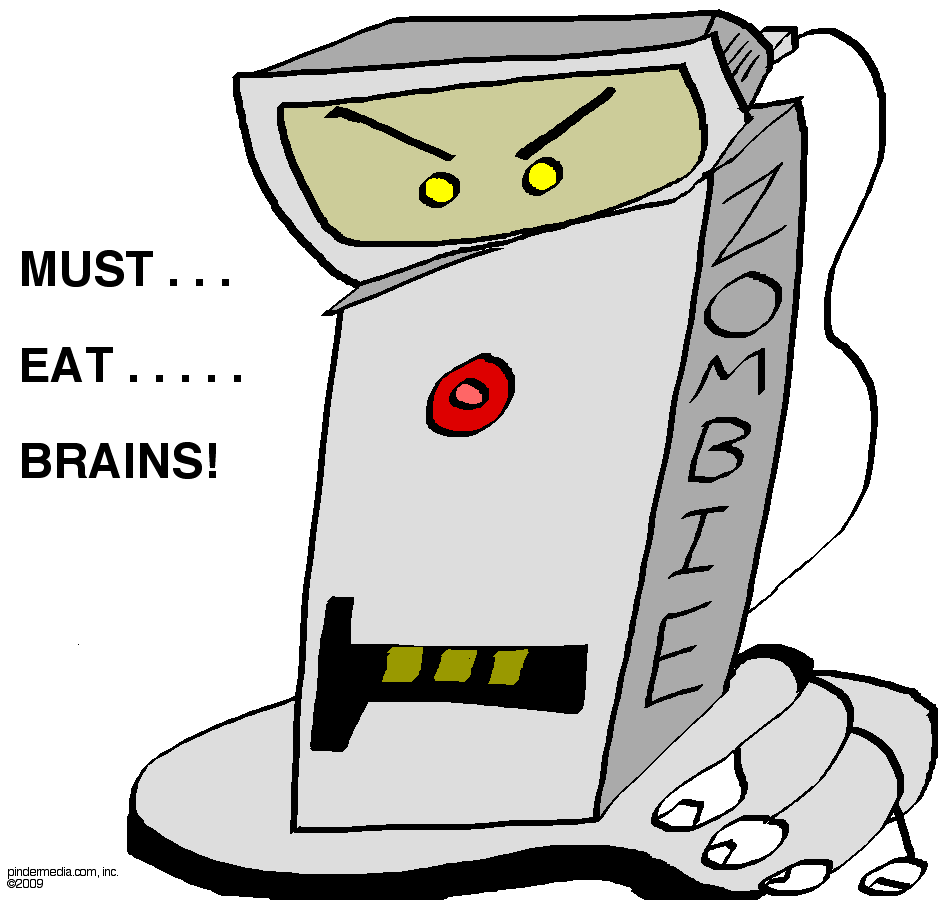 |
|
cyberbarf CRAZY EIGHT (YEARS) PUBLISHER'S NOTE It is hard to believe that this month begins the 9th year of this internet zine, web page, digital publication, or whatever the alleged experts will call it in the next decade. The Time has flown by, figuratively and literally. But throughout the past eight years, our readership has held steady and increased over time. We thank you for your interest and support. Like any other part time endeavor, cyberbarf.com is a house of cards with many self-imposed deadlines. When the site was launched, in companionship with two other web sites, we decided that this site would be a monthly publication. It seemed reasonable at the time. Full time news magazines published print editions on a weekly basis. Business and technology magazines printed on a monthly basis. Newspapers and other media had not gone full speed into web page design and traffic push. So the idea of a monthly personal tech commentary page seemed feasible and reasonable. Having never designed a digital site, it took seven months of page planning, story ideas, cartoon sketches, and some dry run page designing before the official launch on August 1, 2001. The name, cyberbarf, came from the personal backlash of the regular media gushing the unrelenting love puke of the new game changer, the internet, and the wealth creation based on ideas on back of coffee house napkins. The jargon smooth talking stock manipulators calling the internet the new economic engine created a huge financial investment bubble based upon the printing of stock certificates and rarely creating any true, sustainable business profits. The bankers brought anything to market, with the quickest exit strategy possible, as fool's gold was good as gold at the time. The concept of a monthly digest of technology and culture is being lost in the dust with newer fads that caught the public's limited attention span. Home pages turned into blog pages. Blog pages were shrunk into flicker or photolink pages. Flick pages have contracted now to email and attachments. Now, the means of communication is texting 140 tweet characters. As you can tell, the written word - - - in formal article, essay or opinion piece, is constantly being diluted from substantial paragraphs, to a few sentences, to a sentence, to a phrase, to now a bunch of words and slang symbols or intials. The entrails of society's brain stem is dangling in the breeze of an inattentive texter walking, riding or driving a motor vehicle. America once rewarded the knowledge that a full education could provide any person. The phrase that one had to put two cohesive sentences together in order to succeed seems to be a fading relic of an era lost by the wayside. Not here. Not now. For now. Until the next Googlemonster comes along and takes everyone's brain as corporate eminent domain. In the past eight years, the first of the month posting deadline has been met on all by one or two rare occasions. Recently, editions have been actually posted early. It is a personal principle to meet the deadline to create new content. Blog pagers used to have daily diaries, but if you look at recent pages, those entries seem to generally get smaller and fewer. Again, other means of simple communication have taken the computer screen time away from the average writer. If you go back into the archives, you will hopefully see some progress of this site. The late technology writer Gene Seymour once said that so long as you strived to improve your product, you will be rewarded with success. The layout, story content, iToons (cartoons), features and graphics have improved over the years, some by trial and error, some by improvement in time management. Readers have enjoyed the surprise of the special editions over the years, including the Manifesto, the Tech Garden of Eden, Goth Tech, the Gonzo Edition and last month's Steam Punk Special. And the Whether Report has been a favorite new feature. We will continue to improve the site with some changes and tweeks. For example, the current Real News Komix, Dr. Philistine and Rapter Agent, are in the process of ending their runs this year. Plans are in the works to add a new comic series when those series conclude four months from now. The mission statement for cyberbarf remains the same: examine the net way of life.
|
|
cyberbarf
|
REAL NEWS KOMIX
|
|
cyberbarf TWITTERUTURE COMMENTARY
When Roland Barthes said the following quotation, Twitter was not even the imagination of the technorati. “A writer is not someone who expresses his thoughts, his passion, or his imagination in sentences but someone who thinks in sentences.” When I first heard of the concept that Twitter folk were condensing classic literature in 140 character novelettes, a pit welled in my stomach. How can one condense the breathe of a great novel into basically one sentence? “The immature artist imitates. Mature artists steal,” said Lionel Trilling. That is the true dark underbelly of the net: taking an existing work of art and make a condensed derivative work under the guise that the new technology demands it. It may cheapen the original work, change the meaning of the writer's words, or destroy the whole concept of spending hours emersed in the pages of a classic book. Classic literature + Twitter = 140 character Twitteruture, another nonsensical word smash up bound to wind up in Jardon Watch soon. The proponents of the novel squeeze play said that they meant that a book would not be condensed into 140 characters. A novel would be condensed into 20 140-character messages. So what is the point of this exercise? The proponents explained that they wanted to give the public the essence of the protaganist's view as expressed by the author of the book. The explanation seems hollow, since the author's work is being interpreted from the Twitterer's viewpoint which may not be the same context of the original work. It also seems to be a throw-away attempt to expand Twitter's breath without putting any creative effort into creating new content. The study aid industry has made the summary of classic texts (like Cliff Notes) the late night crammer's life preserver before the Big Test. A 500 page work condensed into a 40 page pamphlet of the key highlights, components, character movitations and key climatic passages would get a student a passing grade. But it still is not the same as actually reading the book as the author intended it to unfold to the reader. There is another extreme in the education world. In high school, an English instructor taught her favorite book, Gone with the Wind, for an entire semester. There were daily quizzes on mundane details of the long novel to make sure you were actually reading the book cover to cover. She would ask what was the color and texture of the curtains at Terra. And yes, most students asked, “so what?” It was a marathon semester of severe agony that reading Cliff Notes or watching the movie could not speed along the process. It was mental quicksand. I cannot see Twitter message(s) being the replacement for the great American novel. Example: THE CIVIL WAR WAS HARD ON EVERYONE, INCLUDING MISS SCARLET. SHE VOWED NEVER TO GO HUNGRY AGAIN. SHE LOST ALL THE LOVES OF HER LIFE. SADNESS. That sentence is 137 characters. Does that Tweet accurately summarize Gone with the Wind? Does it accurately reflect the main character's journey through the book? Does it even make you WANT to read the complete novel??! However, great artists can challenge themselves to fit into unbearable, tight spaces. In order to bash his critics and editors, I believe Ernest Hemingway penned the shortest, greatest short story of all time. It consisted of only six (6) words: FOR SALE: BABY SHOES, NEVER WORN. Now that is a Twitter short story written two generations before the internet was even invented. --Ski |
|
cyberbarf THE WHETHER REPORT |
cyberbarf STATUS |
| Question: Whether Global Warming will turn out to be the biggest scam since the Y2K scare mania? |
* Educated Guess * Possible * Probable * Beyond a Reasonable Doubt * Doubtful * Vapor Dream |
| Question: Whether Michael Jackson's death will generate the same internet and cable television overboard coverage as Princess Diana's death? |
* Educated Guess * Possible * Probable * Beyond a Reasonable Doubt * Doubtful * Vapor Dream |
| Question: Whether Congress and the Obama administration's sprint to spend trillions of dollars during a recession on social programs will force lawmakers to adopt an unpopular and hefty national internet tax? |
* Educated Guess * Possible * Probable * Beyond a Reasonable Doubt * Doubtful * Vapor Dream |
EXAMINE THE NET WAY OF LIFE
Aren't these yellow boxes really bright?
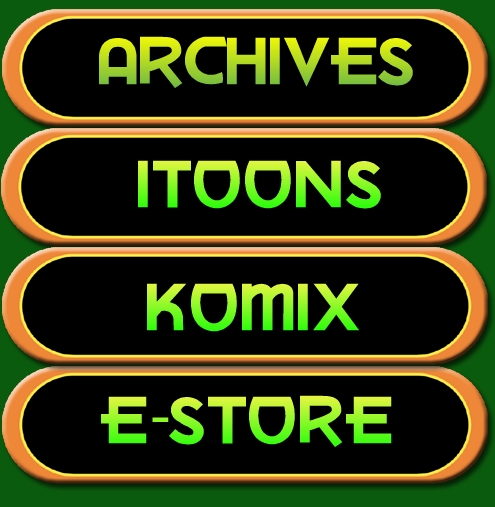 |
 |
 |
